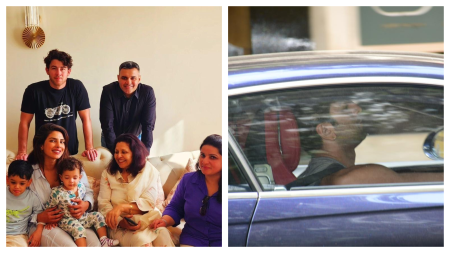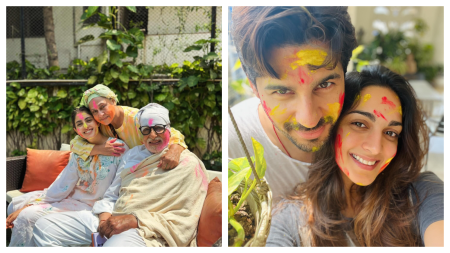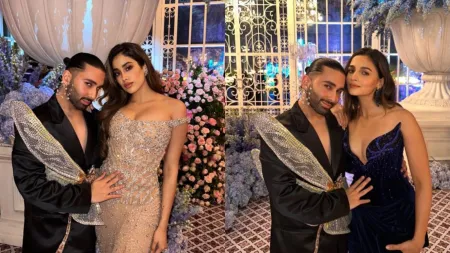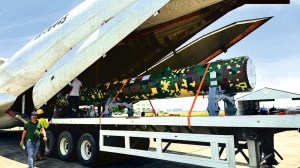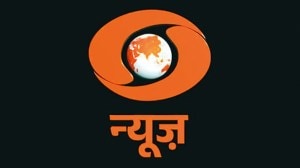- India
- International
‘In Bollywood, lyrics have always played second fiddle to music’
One of Bollywood’s few female lyricists, Kausar Munir talks about the perks and pitfalls of a gender divide, and her new projects.
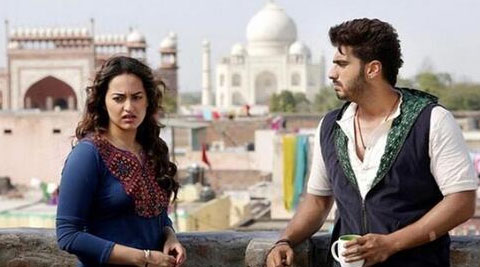 Tevar
Tevar
Why do you think the Hindi film industry has so few female lyricists?
Traditionally, there have been few women writing lyrics and the volume of work (by them) has not been significant. Even today, Anvita Dutt and I are the ones doing it full-time. I have a very boring sociological answer to it. I think women came to the industry late, and mainly when they were required either to play a woman’s character or work as a playback singer.
Do you believe women bring in a certain kind of sensitivity to their lyrics?
I don’t think it’s a gender thing — it is more about perception, language and personality. If someone comes to me for an item song, I too immediately think of all those raunchy words since we are conditioned to think like that. But maybe, because I am a woman, I step back and think there is a better way of doing this. That’s when the gender difference comes in. For Tevar, which is releasing in December, I have written an item song. Kavita Seth was supposed to sing that. When she read the lyrics, she backed out. She told me, ‘you write very well but this is not something I can sing’. I understood what she was trying to express. Perhaps, the moral pressure is more on women.
You studied in a convent, studied English literature. Did you have to work on your Hindustani and Urdu?
I read and think in English. I even write scripts in English, but that changes when it comes to poetry. Since childhood, I have been interested in Hindi film songs. In school, I used to write down songs I liked. I guess that has something to do with it.
How much has your family and upbringing contributed to it?
My paternal grandmother Salma Siddiqui, an Urdu writer, was married to the famous writer Krishen Chander. They were part of the Progressive Writers’ movement. As a child, I have seen writers and lyricists like Kaifi Azmi, Javed Akhtar, Dr Rahi Masoom Raza, Majrooh Sultanpuri and Naushad dropping in at our home. My grandmother’s father was Rashid Ahmad Siddiqui, one of the stalwarts of Urdu prose. Usually, I don’t want to take their names because I consider myself a kalank. I can’t even speak the language. But I am tempted to say that I am a good listener and observer. Maybe, it was suspended somewhere in my subconsciousness.
Do you have a process that you follow when writing lyrics?
Irshad Kamil says, ‘Melodies are like magnets. They attract words.’ Of course, it is not that technical, one has to think of the given situation and characters. In some cases, one has to research. For example, I researched on Baul music for Bullet Raja’s Saamne hai savera, in which I have used some Bangla. However, in Hindi film songs, lyrics have always played second fiddle to music. Only veterans like Gulzarsaab or Javedsaab (Akhtar) have been able to transcend that.

You have written the anthem of Pradeep Sarkar’s Mardaani. Tell us about it.
Mardaani is perhaps the first Yash Raj Films production that does not have songs, barring this one. Aditya Chopra made me watch the movie first and then told me to write. The movie is about girl child trafficking and I am a mother to a 12-year-old girl. I reacted very emotionally to it. What came out was not very poetic, but hard-hitting and emotional.
You have a lot on your hands — writing lyrics, scripts and dialogues…
My next release after Mardaani is Dawaat-e-Ishq. I have written all of its five songs. Working with (director and screenwriter) Habib Faisal again, after Ishaqzaade, was a great experience. I have a peppy Ganpati song in Ramesh Sippy Entertainment’s Sonali Cable, which will be released later this month. Then there is Amit Sharma-directed Tevar and Kabir Khan’s Phantom for which I have done the dialogues and lyrics. I am also part of writing the story, screenplay and dialogues of Simla Mirchi, Ramesh Sippy’s directorial comeback.
You were a language consultant for Gauri Shinde’s English Vinglish. Is having a language consultant common in Bollywood?
Unlike the West, a language consultant is not common in India. Gauri is one of my closest friends, so I was not even thinking of it as a job. Once the film progressed, I sat on the sets, making sure the lines were said correctly. It was not just about diction, but about how to make the lines part of the characters’ personalities.
While taking up an assignment, what are your criteria?
I go for the director. According to me, cinema is completely the director’s medium and music is part of the film. When a director knows what he wants, superb things happen. Why do I write better for some movies and not for others? That could be because, some directors are able to get better work out of me.
Was Ishaqzaade a turning point in your career?
It was more like my entry point. Before that, I had written only one song, Falak tak for Tashan. Habib called me for Ishaqzaade because he was having problems finalising a lyricist. But he was not sure about me, so he asked me to write the Jhalla wallah song first. There I used the word Ishaqzaade, which became the film’s title.
How do you sustain your creativity?
I feel that the first burst of creativity is over. Now, sometimes, I feel I should replenish my creativity. So I read, watch movies, meet people and then step back. But that’s not always possible when you have a child and a household to take care of. That’s perhaps where the gender divide comes in. A man can isolate himself whereas I have to track when guests are coming, what is being cooked, when does my child have a test, or when does my grandmother need to go to a doctor.
Photos
Apr 20: Latest News
- 01
- 02
- 03
- 04
- 05



















